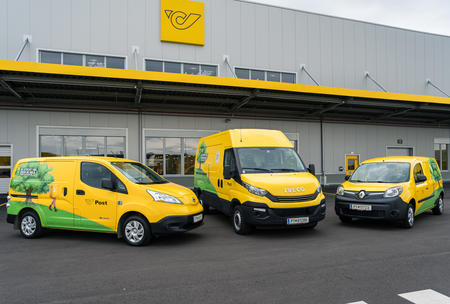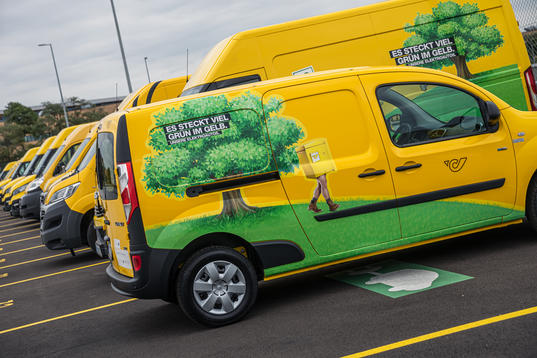Boasting over 1,000 BEVs in its fleet, Austrian Post is leading by example not only in the country, but in the postal sector too. Having deployed nearly 800 electric light commercial vans, as well as over 400 electric motorised 2/3 wheelers and over 600 e-cargo bikes, Austrian Post is not only demonstrating the transition can be done, but that it can also be good for business too.
Until recently, Austrian Post has taken the approach of deploying EVs across the country gradually to learn about how to use the vehicles and supporting infrastructure. Now the company is stepping up its action at speed. Its current lighthouse project is to make the city of Graz the first in the country to enjoy emission free deliveries by August 2021.
“The Green Graz project is a milestone for us. Based on our experiences since 2011, we have learned that BEVs are the best option for us in last mile delivery. By installing our biggest charging site, with 65 smart chargers, our intention was to take the next step in building zero emission free delivery and show that it is already possible.”
“The Green Graz project is a milestone for us. Based on our experiences since 2011, we have learned that BEVs are the best option for us in last mile delivery. By installing our biggest charging site, with 65 smart chargers, our intention was to take the next step in building zero emission free delivery and show that it is already possible.”
As part of the “Green Graz” project, they are rolling out 130 BEV delivery vans for letters and parcels across the city region, supported by two emission free logistics depots. The vans will be powered by 65 smart chargers at each depot. The depots will use software to manage energy distribution and power consumption, and will be among the largest charging clusters in the country.
For Austrian Post, the transition to EVs has not just enabled them to reduce emissions, but it’s backed up by a strong business case.

Having deployed over 1,000 EVs, the company is confident that BEVs are more suitable for last mile delivery than their ICE alternatives. As well as seeing significant fuel savings from BEVs, the simplified construction of a BEV means maintenance costs have reduced by more than 50%, which is vital for delivery vehicles that are stopping and starting up to 200 times per day.
Strong government subsidies and tax exemptions for zero emission vehicles have also supported the business case even further, including for bigger commercial parcel delivery vans.
This case study is from our EV100 2021 Progress and Insights Report. Please click here to read the report.
Case Study - Austrian Post.pdf
Size: 521.02 KB
Date added: 10/02/21
Austrian Post - German.pdf
Size: 518.49 KB
Date added: 16/02/21
